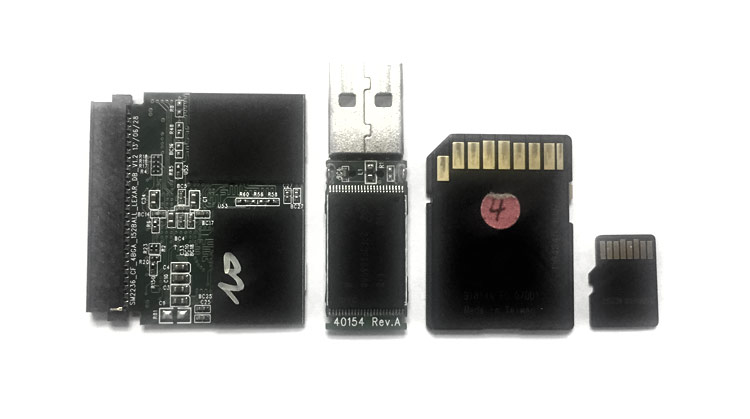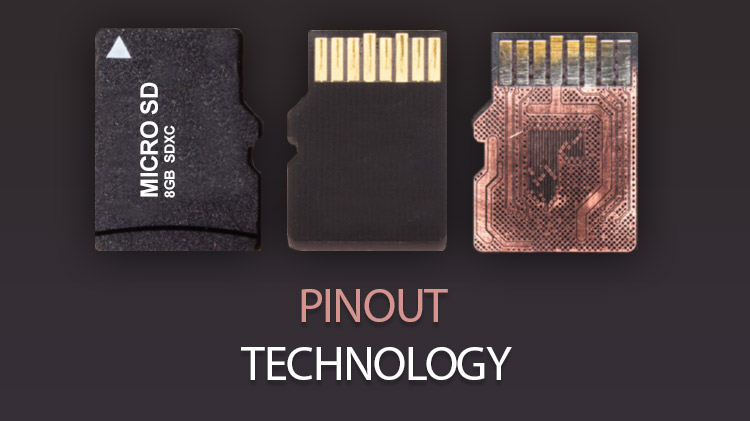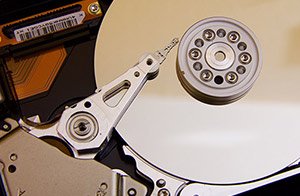
It sort of makes logical sense. You would think that the smaller the device, data recovery should be easier and therefore, cost a lot less than on massive hard drives. Well, it is not even close to the truth. We hear it all the time. A client drops off a USB drive that is not being recognized and since it’s so small, the price quote we provide for recovery doesn’t match the perceived size of the job.
The reality is that the smaller the device happens to be, the more difficult it is to recover data. That’s because it takes a lot longer to successfully recover the data and the hours the engineer puts into it is where the bulk of the cost comes from.
Here’s an example of what I mean:
A regular USB has a failed controller. We are required to dump the NAND FLASH.
1. We will have to desolder the chips. Typically, there happen to be more than one NAND flash chips on the PCB. This takes time.
2. Once we remove the NAND flash chip, we insert it into a special adapter reader. This job is usually one NAND at a time and to complicate it even further, the flash doesn’t always read quickly with the adapters. This means that it can take days in some cases in order to successfully dump the FLASH file for every chip.
3. Dumping the NAND flash is really just half of the problem or solution to the problem. The most difficult part is reconstructing the dumps into a working, accessible file system. This can also take days at a time to accomplish.
When you calculate all the hours and days it takes to work around a single USB drive you can quickly determine that it won’t be an hour or two quick recoveries. I know, just by looking at your average innocent-looking USB you’d never expect that.
Sure, some flash drives are not hard to recover. That is particularly true if they are manufactured by well-known companies in the industry. But when the USB drive happens to be of the Chinese “knock-off” variety, containing rare controllers, don’t be too surprised if a data recovery firm won’t attempt to save your USB. It’s simply because they won’t be prepared to take on your case because they won’t be able to work around that rare controller.
Here’s another tip for you: If you have a knock off USB drive that has a bad controller and also has a bad PCB, don’t be too shocked if you receive an astronomically huge recovery quote. It happens more often than you may think.
This exact same scheme works the same with most other devices… SD cards, as well. The smaller the SD card, the more chances that it is monolithic. Yes, monolithic cards can still be recovered but it happens to be a very challenging process. To give you an idea of what I mean by that, here is the blog I wrote about recovering data from monolithic devices.

Oddly enough, the same rule applies to hard drives. The smaller the disk, the more finicky the parts are. That increases the chances of increased damage to those finicky parts. Essentially, the smaller the parts, the easier they are to damage and this makes recovery a challenge regardless of the situation.
I’m trying to get across to you that as great as it may be to be able to store data on smaller devices, the recovery process with these smaller devices takes longer and that increases the cost associated with the recovery. Somehow the misconception got out there that smaller meant faster and easier recovery. There is no way that could be possible based on the challenges that smaller devices present to those of us in the data recovery industry.
Hopefully, I have been able to clear this up for you.
Just keep in mind that smaller does not mean easier and cheaper to recover. It actually is the complete opposite.

